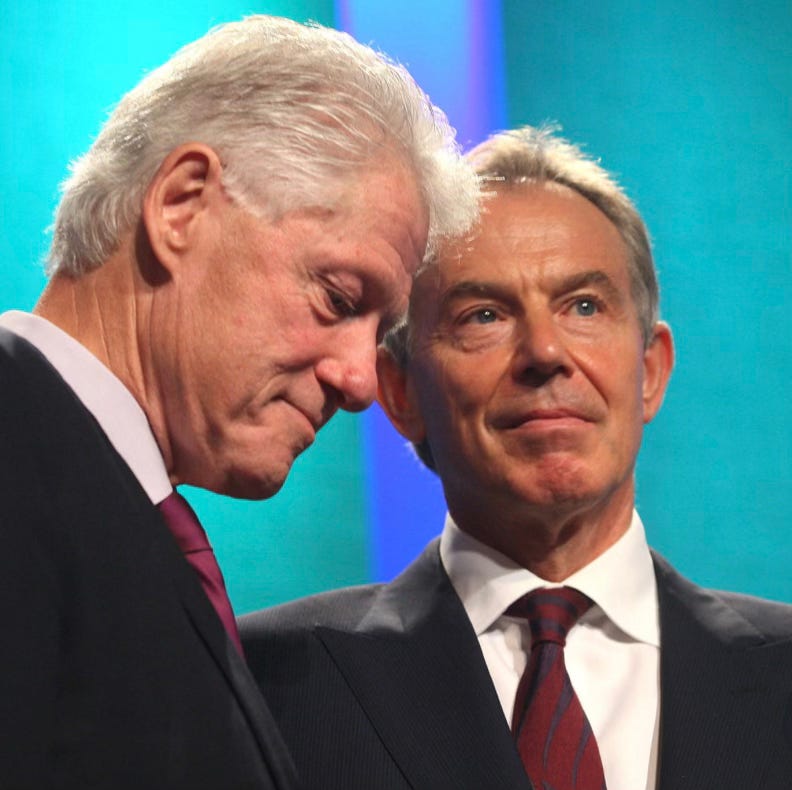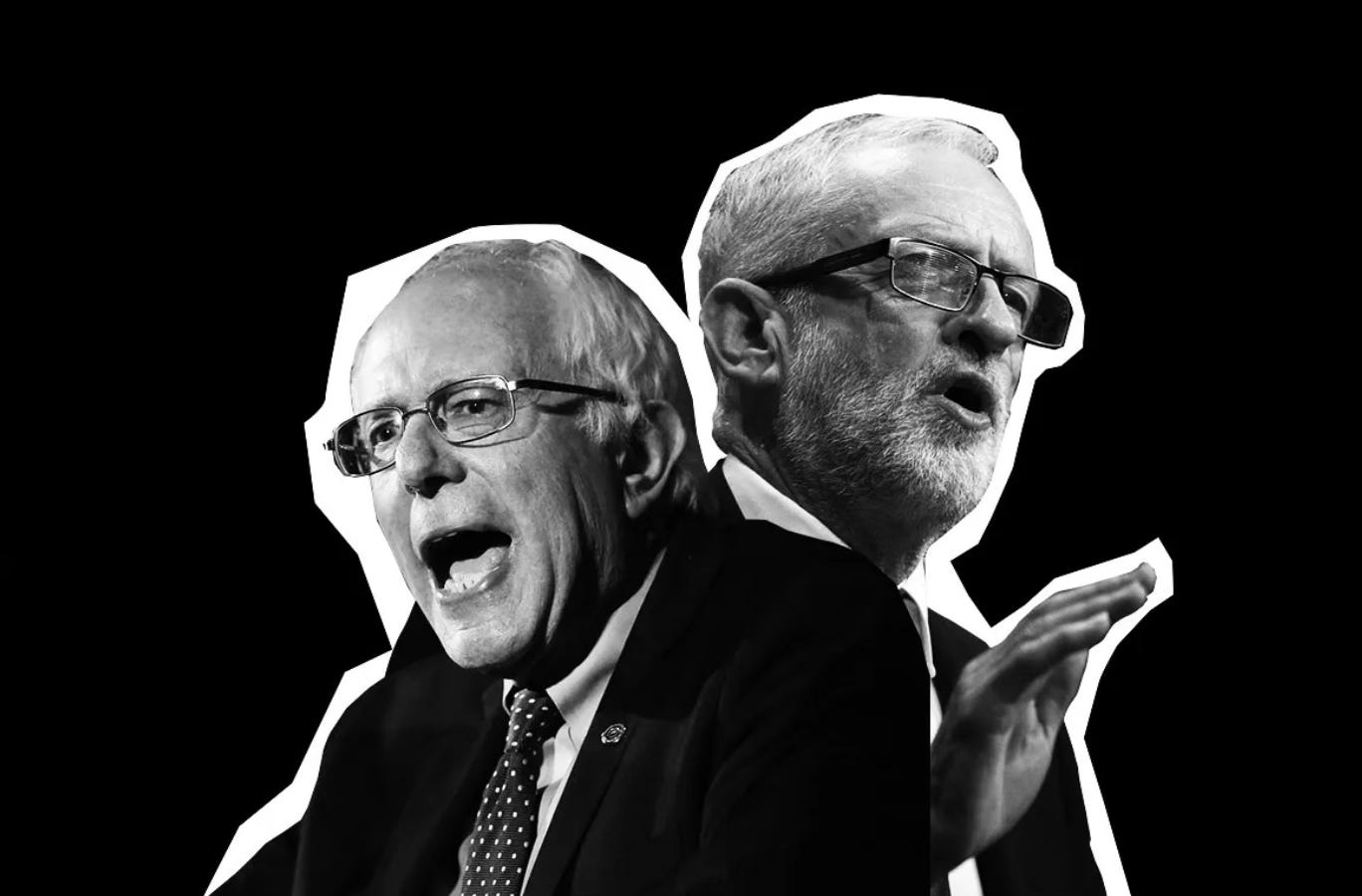The world stands on the brink. Donald Trump’s return to power signals a new era of climate denial, corporate greed, and political destruction. With the United States once again withdrawing from the Paris Climate Agreement, the fragility of our planet is laid bare. The Earth burns, but the oligarchs dream of escape—to Mars, to wealth-soaked enclaves, anywhere but here.
In the UK, despair has a different face. Keir Starmer’s Labour promised change after years of Tory chaos, but the reality has been continuity. Starmer’s Labour isn’t a transformative force; it’s an overly cautious and unambitious caretaker. And while Labour stalls, Reform UK grows, emboldened by Trump’s success across the Atlantic. The right claims to be the voice of the people, while the left is buried under the weight of its own silence.
How did we reach this point? And more importantly, how can we dig our way out of it? This article explores how the left became entwined with centrist politics, tarnished by the failures of the middle ground. It argues that the left must separate itself and rise again—because if it doesn’t, the world will continue to be shaped by Trumpism and ever more extreme solutions.
The Betrayal of Working People
The seeds of today’s political crisis were sown in the 1980s under Margaret Thatcher and Ronald Reagan. Both leaders implemented policies that crushed trade unions, privatised industries, and dismantled the welfare state, transferring power from workers to corporations. Their embrace of deregulation, austerity, and unrestrained capitalism tore apart the foundations of economic stability for millions, leaving industrial communities to rot.
When Tony Blair and Bill Clinton came to power, they didn’t reverse this trajectory—they accelerated it. Under the banner of ‘Third Way’ politics, they claimed to offer a pragmatic middle ground. In reality, they institutionalised neoliberalism, embracing globalisation, deregulation, and privatisation as inevitable. Blair presided over the erosion of union power and the proliferation of Private Finance Initiatives (PFIs), which saddled public services like the NHS with crippling debt. Clinton signed the North American Free Trade Agreement (NAFTA), which encouraged American companies to offshore manufacturing jobs to low-wage economies, devastating communities reliant on stable industries.
These policies didn’t just fail to address inequality—they deepened it. They concentrated power in the hands of corporations, left workers at the mercy of precarious jobs, and eroded public trust in politics. The middle had failed, yet its proponents insisted it was the only viable path forward.
Labour under Keir Starmer has revived Blair’s template, modelling itself as a cautious, centrist alternative to Tory chaos. But it’s not 1997 anymore. The policies that Blair championed—such as financial deregulation and PFIs—didn’t solve the systemic problems facing the UK. They exacerbated them, creating the conditions for the 2008 financial crash and leaving the public sector underfunded and overburdened.
Worse, Labour’s boldest move under Starmer has been to purge its left wing with zeal and gusto. MPs and members who once energised the party under Jeremy Corbyn have been silenced or forced out. Starmer’s Labour no longer represents its traditional base. Why should working people remain loyal to a party that rejects their ideas and only remembers them when votes are needed? Labour deserves to be replaced by a progressive, unified alternative that dares to confront the crises we face.
Corbyn, Sanders, and the Sabotage of Progress
Jeremy Corbyn’s leadership of the Labour Party and Bernie Sanders’ rise in the United States offered glimpses of a transformative alternative. Both proposed policies that could have addressed systemic inequality and climate collapse. Corbyn’s 2017 manifesto pledged to renationalise utilities, abolish tuition fees, build public housing, and launch a Green Industrial Revolution. Sanders advocated for Medicare for All, a $15 minimum wage, and comprehensive climate reform.
However, both faced fierce opposition from their own parties. In the United States, the Democratic National Committee (DNC) manipulated the 2016 and 2020 primaries to sideline Sanders in favour of establishment candidates (Shafer, 2016). Corbyn faced similar sabotage within Labour. Leaked party documents revealed that senior officials actively undermined his leadership, even during the 2017 general election when Labour came within touching distance of victory (Labour Party, 2020).
Corbyn’s policies weren’t defeated on their merits; they were crushed by a coordinated campaign of media vilification and internal party sabotage. Polling data shows that during the 2017 campaign, Labour’s policies were popular with voters. The party saw a surge in membership under Corbyn, growing to over 500,000 members—the largest of any party in Europe (BBC, 2024). But since his departure, membership has plummeted, replaced by wealthy donors who pull the party further from its roots.
The left’s repeated suppression by centrist forces demonstrates the establishment’s fear of genuine change. Sanders and Corbyn were sidelined not because they lacked support, but because they threatened the systems that benefit the powerful.
Winning Back Trust—Mick Lynch, Net Zero, and the Lessons of Covid-19
Mick Lynch: Rebuilding from the Ground Up
Mick Lynch, leader of the RMT union, has provided a blueprint for how the left can reconnect with working people. Lynch argues that the left must focus on practical solutions: fighting for workers’ rights, tackling economic inequality, and delivering policies that improve lives in tangible ways (Lynch, 2024). He emphasises that the left must rebuild trust through action, not rhetoric, and demonstrate that it stands with the communities left behind by decades of neglect.
The Failure of Net Zero in the UK
Climate action is another key battleground where the left must rebuild credibility. Net Zero policies in the UK have been poorly implemented, creating hostility rather than hope. Policies like the Ultra Low Emission Zone (ULEZ) expansion in London force individuals to bear the financial burden of environmental reforms without meaningful support. This approach makes climate action appear punitive, deepening mistrust.
The left must reframe climate policy as an opportunity for economic renewal. A Green New Deal, tied to job creation and investment in infrastructure, could show that tackling climate change isn’t just necessary—it’s a chance to rebuild communities and improve lives.
The Lessons of Covid-19
The Covid-19 pandemic should have been a moment of reckoning. It exposed the fragility of our systems and the precariousness of millions of people’s lives. For a brief moment, there was talk of ‘Build Back Better’ and creating a fairer society. But this narrative was quickly replaced by calls for a return to normality, forgetting that for many people, normality has been an unbearable trudge.
The hypocrisy is stark: during the 2008 financial crash, banks were bailed out with billions of public money, yet ordinary people were left to fend for themselves. The pandemic should have been a turning point. Instead, it became a missed opportunity to address systemic injustice.
Tax, Electoral Reform, and Labour’s Abandonment of Its Roots
If Labour is serious about tackling inequality, it must embrace a wealth tax. During the pandemic, Britain’s billionaires saw their wealth skyrocket, while ordinary people struggled to make ends meet (ONS, 2024). A wealth tax could raise billions:
• A 1% tax on wealth over £5 million could generate £10 billion annually.
• A 2% tax on wealth over £10 million would raise even more, funding healthcare, education, and climate initiatives (IPPR, 2024).
But Starmer’s Labour refuses to consider such measures—or any policies associated with Jeremy Corbyn. Instead, it has voted to maintain the Two-Child Benefit Cap and supported removing the Winter Fuel Allowance for pensioners. These decisions pave the way for renewed austerity, enabling far-right scapegoating of the most vulnerable in society.
Electoral reform, particularly proportional representation (PR), is another systemic change Labour avoids. PR would ensure every vote counts, prevent the dominance of minority governments, and create political space for progressive coalitions. Yet Starmer remains silent, unwilling to challenge the system that entrenches inequality and blocks change (Toynbee, 2025).
MPs of good conscience must stop aligning with Starmer’s centrist agenda and fight for transformative reforms. Without bold action, Labour risks becoming irrelevant, leaving the right and far-right to dominate.
Conclusion
The left cannot afford to remain tarnished by centrist failures. The world is burning—literally and figuratively—and the solutions offered by the political middle have proven wholly inadequate. Incrementalism and caution will not save us. The return of Donald Trump and the rise of political right movements globally reflect the political vacuum created by decades of neoliberalism and the refusal to address systemic inequality. We are not just fighting for votes or power; we are fighting for the future of our planet and for the very idea of democracy.
The left must rise again, not as a pale shadow of the middle ground, but as a bold and uncompromising force for transformation. It must build a compelling and tangible vision for a better future, one that offers hope to the many who feel left behind. This means fighting for a wealth tax that redistributes power and resources from billionaires to the communities they have exploited. It means championing proportional representation, so every voice is heard and every vote counts. It means linking climate action to economic renewal, showing that tackling the climate crisis can also rebuild industries, create jobs, and revitalise communities.
But it also means something deeper: the left must stand unapologetically for fairness, justice, and the collective good. It must reject the false narratives of division that pit working people against each other. It must confront the scapegoating of the vulnerable—single mothers, immigrants, the unemployed—that the right thrives on. Instead, it must turn its fire on those truly responsible for our crises: the corporations and billionaires who profit while the world burns.
This is a fight we can win. History has shown us that when people come together, when they demand change, they can reshape the world. The NHS was not born out of cautious compromise; it was the result of bold vision and determined action. The climate crisis, the inequality crisis, the crisis of democracy—all of these can be met with the same courage.
This is not the time for despair or retreat. It is time to organise, to fight, to dream again. The right would have us believe that this is the best the world can be: a place of greed, division, and destruction. But they are wrong. Another world is possible, one built on cooperation, equality, and hope.
The left must not settle for incremental change. It must lead the charge to build a better future—not just for those alive today, but for generations to come. The time for action is now. If we do not rise, if we do not fight, then the world will be shaped by the forces of division and despair. The choice is stark: build a better world, or watch the world burn.
References
BBC. (2024). Labour membership hits record low post-Corbyn era.
IPPR. (2024). The case for a wealth tax in Britain: potential revenues and implementation.
Labour Party. (2020). The leaked Labour report: analysis and implications.
Lynch, M. (2024). Speech at the Trades Union Congress Annual Conference.
ONS. (2024). Wealth inequality in Britain: pandemic profits and poverty gaps.
Shafer, J. (2016). How the DNC worked against Bernie Sanders in 2016. Politico.
Toynbee, P. (2025, January 21). There’s a way to beat a far-right takeover in the UK. So why has Starmer gone silent about it? The Guardian.







